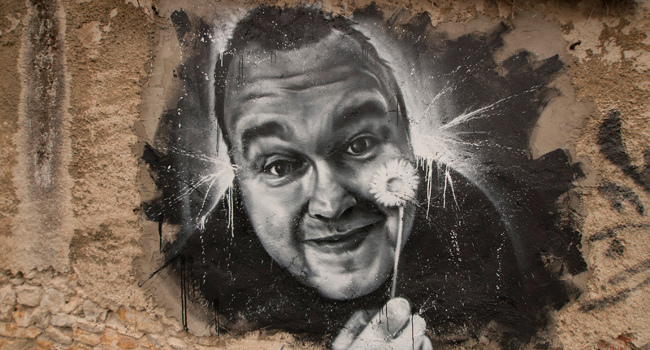Internet entrepreneur Kim Dotcom has enlisted an influential ally as he entered the last leg of a battle to prevent extradition to the United States on charges of copyright infringement and wire fraud related to his website Megaupload.
Lawrence Lessig, an outsider in the Democratic presidential nomination race and Harvard Law School professor, filed an affidavit in defence of Dotcom, who will face the New Zealand courts on Monday in a bid to prevent the extradition.
Challenging the allegations of copyright infringement, Lessig claimed that the facts of the case do not establish that Dotcom and his co-defendants themselves infringed:
“A showing of willful criminal copyright infringement requires compact factual proof identifying a specific copyrighted work, a right of the owner that has been violated, the geographical location of the infringement and other specific facts needed to establish a violation of United States criminal law. Such compact facts are absent here.”
He added:
“The generalized accusations, defective and irrelevant allegations, scattered facts of alleged multiple infringements and statistics set forth in the superseding indictment and record of the case do not satisfy requirements of proof but rather manifest unreliability of the overall approach.”
The Harvard professor went on to argue that the crime of “secondary copyright infringement” that Dotcom stands accused of does not exist under American law, with Lessig saying that American Congress has never defined such a crime even though such infringement is recognised in civil law.
Defending Megaupload in general, Lessig referred to the so-called Sony Doctrine which defends technologies that can be used for illegal purposes so long as they have substantial legal purposes, the standard having originated in the Betamax case against Sony over the use of its video cassettes to record copyrighted television shows.
“Under civil copyright law, internet service providers, such as Megaupload, do not have a duty to investigate potential infringement,” the law professor argued.
Lessig then went on to reject the case against Dotcom for conspiracy to commit copyright infringement…
“There is no showing of specific criminal ‘willful’ infringements committed by specific individual users. There is an even more serious lack of evidence of communications between respondents and such alleged users needed to prove an agreement that is subject to laws of conspiracy.”
…and then turned to the case against Dotcom for Megaupload’s online abuse tool’s alleged failure to take down all links to a given file rather than just the ones being reported:
“The DOJ [Department of Justice] appears to be asserting that an ISP [Internet service provider] like Megaupload, which receives copyright take down notices identifying one URL, must search for and delete all duplicate files used by different users in the cloud system or be subject to a copyright or fraud claim. In my opinion the DOJ’s novel theory of copyright or fraud liability is erroneous.”
In summary Lessig concluded that extraditing Dotcom was not possible:
“It is my opinion that the Superseding Indictment and Record of the Case filed by the United States Department of Justice (DOJ) do not meet the requirements necessary to support a prima facie [“on first appearance”] case that would be recognized by United States federal law and subject to the US – NZ Extradition Treaty.”
The hearing against Dotcom and his co-defendants will begin next week.
Image Credit – Kim Dotcom portrait, October 2012 via Thierry Ehrmann
